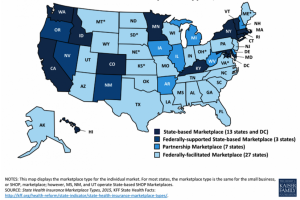On June 25, the Supreme Court of the United States (SCOTUS) ruled (6-3) to uphold health care subsidies included in the Affordable Care Act (ACA). This is a huge victory for individuals who now have health insurance coverage through the ACA and in particular, the federal healthcare marketplace, healthcare.gov.
What was the case all about?
At its core, the ACA includes three key components related to the provision of health insurance coverage 1) health insurance options for all, including those with pre-existing conditions 2) subsidies (i.e. tax credits) to make coverage affordable, especially for those with lower income and 3) an individual mandate which requires individuals to have health insurance coverage, unless they meet very specific exclusion criteria.
The SCOTUS case ruled upon today (King v Burwell) was specifically about the subsidies and the mandate. The original language of the ACA states that subsidies would be available to those who purchased coverage through exchanges established by the state.
When the healthcare marketplace was being built, individual states were given the option to set up their own insurance exchange (marketplace), utilize the federal exchange (healthcare.gov) or enter into a multi-state partnership exchange.
In 2015, here is where the states stand:
More than half of the states operate under healthcare.gov, the federally-facilitated insurance exchange (marketplace). The plaintiffs in King v Burwell are from Virginia. They argued that because their state did not have a state based marketplace, they should be exempt from the individual mandate because accordingly to the language of the law, they couldn’t get subsidies because there was no state exchange and the cost of their insurance would be more than 8% of their total income.
So yes, this entire Supreme Court case and its subsequent ruling came down to that one word, state.
Through this ruling, SCOTUS interpreted the ACA as meaning that all states can offer subsidies for health insurance costs regardless of if they are operating their own exchange or utilizing the federal government exchange.
For the individual, this means if you have coverage through the ACA, regardless of what state you live in or what type of exchange you purchased your coverage through, you will keep receiving the subsidies that help offset the cost of your health insurance coverage.
This is a big victory for the ACA and its supporters, but more importantly for the nearly 6 million individuals who have come to rely on the financial assistance available through subsidies to help them obtain and maintain affordable health insurance coverage. Had this ruling gone the other way, MANY folks would no longer be able to afford their insurance premiums without the subsidies.
